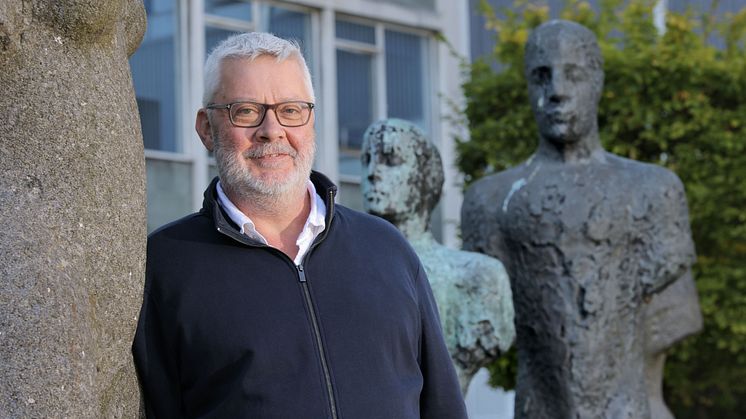
Press release -
New research could transform how we understand human interaction
Professor Billy Clark of Northumbria University is embarking on a groundbreaking research project which will investigate key processes behind how humans communicate and understand each other.
The project, entitled ‘Producing and evaluating style,’ has been made possible thanks to a Major Research Fellowship, awarded by The Leverhulme Trust.
A leading linguistics expert, Professor Clark’s research applies ideas from pragmatic theories, focusing on how people communicate and understand each other. His new project will help us better understand the mental processes behind everyday conversation.
The research will explore two critical aspects of human communication that have received limited academic attention – the processes involved in producing communicative behaviour and the mechanisms we use to evaluate what others communicate to us.
“When someone says ‘I'm tired’ with a particular tone of voice and particular kinds of nonverbal behaviour, what are the processes that led them to communicate in that particular way, and how do we as addressees understand what they really mean?” says Professor Clark. “My research will investigate whether these processes involve explicit reasoning or are more spontaneous, and how these different kinds of processes interact.”
The study will build on relevance theory, which suggests that humans use ‘fast and frugal heuristics’ – or mental shortcuts – to quickly identify the interpretation that speakers intend. This applies not just to verbal communication but also to nonverbal cues and behaviours.
Professor Clark's research methodology will include experimental studies examining how people consider the possible effects of their communications. Participants will discuss potential reactions to their statements and indicate whether they expect positive or negative responses, allowing researchers to map these imagined effects against actual outcomes.
The project will also employ stimulated recall techniques, where researchers ask participants to explain their communication choices immediately after making them. This approach promises to reveal the real-time decision-making processes that determine why we say something one way rather than another.
“There's been very little research on evaluating communication,” explains Professor Clark. “While more work has been done on production, it tends to focus on what is produced rather than what makes people say it in a particular way. We want to understand the real processes – what stops you from saying something one way and makes you say it another.”
The research has significant practical applications. Professor Clark has previously applied ideas from pragmatic theories to help students improve their communication skills, including work on copywriting, nonverbal communication, and understanding inference-making in everyday contexts.
The findings will contribute to an academic book and could inform teaching materials, including resources for A-level students and teachers. “Understanding how we communicate with each other is fundamental to human interaction,” says Professor Clark. “When students are introduced to pragmatics, they often report feeling more confident and positive about their communications. These ideas about identity and behaviour are relevant to all of us throughout our lives.”
The Leverhulme Trust’s highly competitive Major Research Fellowships support innovative research that might be considered too risky for traditional funding bodies.
“To undertake an ambitious project like this, you need dedicated time and resources,” explains Professor Clark. “It's a privilege to receive this support from the Leverhulme Trust.”
Professor Clark's research interests include aspects of linguistic semantics, pragmatics (a field which focuses on language usage in context), prosodic meaning (how the tune and rhythm of speech contribute to meaning), stylistics (a field which applies ideas from linguistics and other areas in understanding literary and other texts), and multimodal meaning. Among his publications are Pragmatics: The Basics, published by Routledge and Relevance Theory, published by Cambridge University Press.
The fellowship begins this month and will run for two years, providing Professor Clark with the dedicated research time needed to advance our understanding of human communication processes.
Find out more about Northumbria’s School of Humanities and Social Sciences and research being conducted by English Language and Linguistics staff and students.
Topics
Categories
UNIVERSITY OF THE YEAR 2022 (Times Higher Education Awards)
Northumbria is a research-intensive university that unlocks potential for all, changing lives regionally, nationally and internationally.
Two thirds of Northumbria's undergraduate students come from the North East region and go into employment in the region when they graduate, demonstrating Northumbria's significant contribution to social mobility and levelling up in the North East of England.
Find out more about us at www.northumbria.ac.uk
--- Please contact media.communications@northumbria.ac.uk with any media enquiries or interview requests ---






